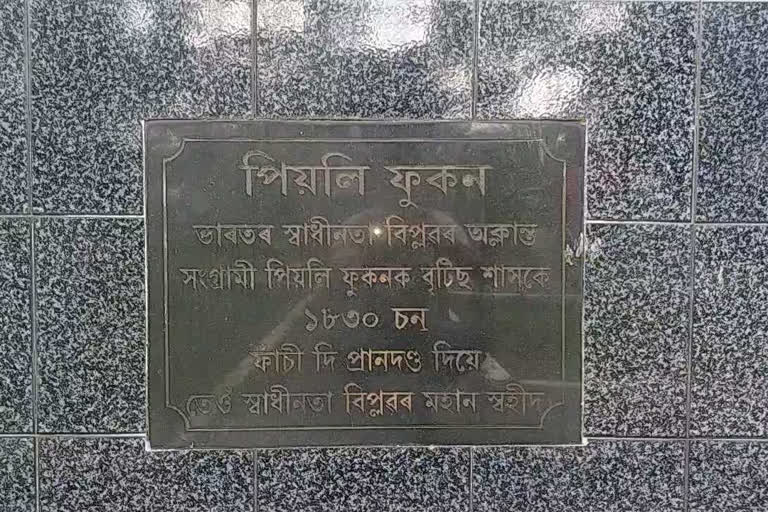Guwahati (Assam): Despite sacrificing their lives during the freedom struggle, the names of Piyoli Phukan and Jiuram Dulia Baruah were omitted from the records.
Long before 1857, the year known for the first battle in India against the British, the two youths from Assam threw a challenge to the British by attacking the latter's arsenal in 1830.
Also read: Workers of political parties clash over farm bills in Patna
After the Burmese army was defeated by the British in 1926, the Treaty of Yandabo was signed between the British and the Burmese.
After signing the treaty, Assam was passed into the hands of the East India Company, ending the 600-year-long rule of the 'Ahom' kingdom.
Following that, a few youths got determined to free their land from the clutches of the British Raj.
Under the leadership of Piyoli Phukan, the young freedom fighters planned that the British arsenal of Rangpur would be set on fire.
Piyoli Phukan, accompanied by Jiuram Dulia Baruah, and others, decided to meet their plan on March 25, 1830.
Meanwhile, Piyoli Phukan was arrested on the spot.
On the suggestion of Maniram Dewan, a loyal ally of the British both Piyoli Phukan and Jiuram Dulia Baruah were sentenced to death, while, Piyoli' followers were put in jail.
It was on September 23, 1830, both Pioli Phukan and Deuram Dulia Baruah were hanged to death on the banks of the Sivasagar Pond.
People of Assam raised a demand to preserve the ground where the freedom fighters were hanged and transform it into a tourist spot.



